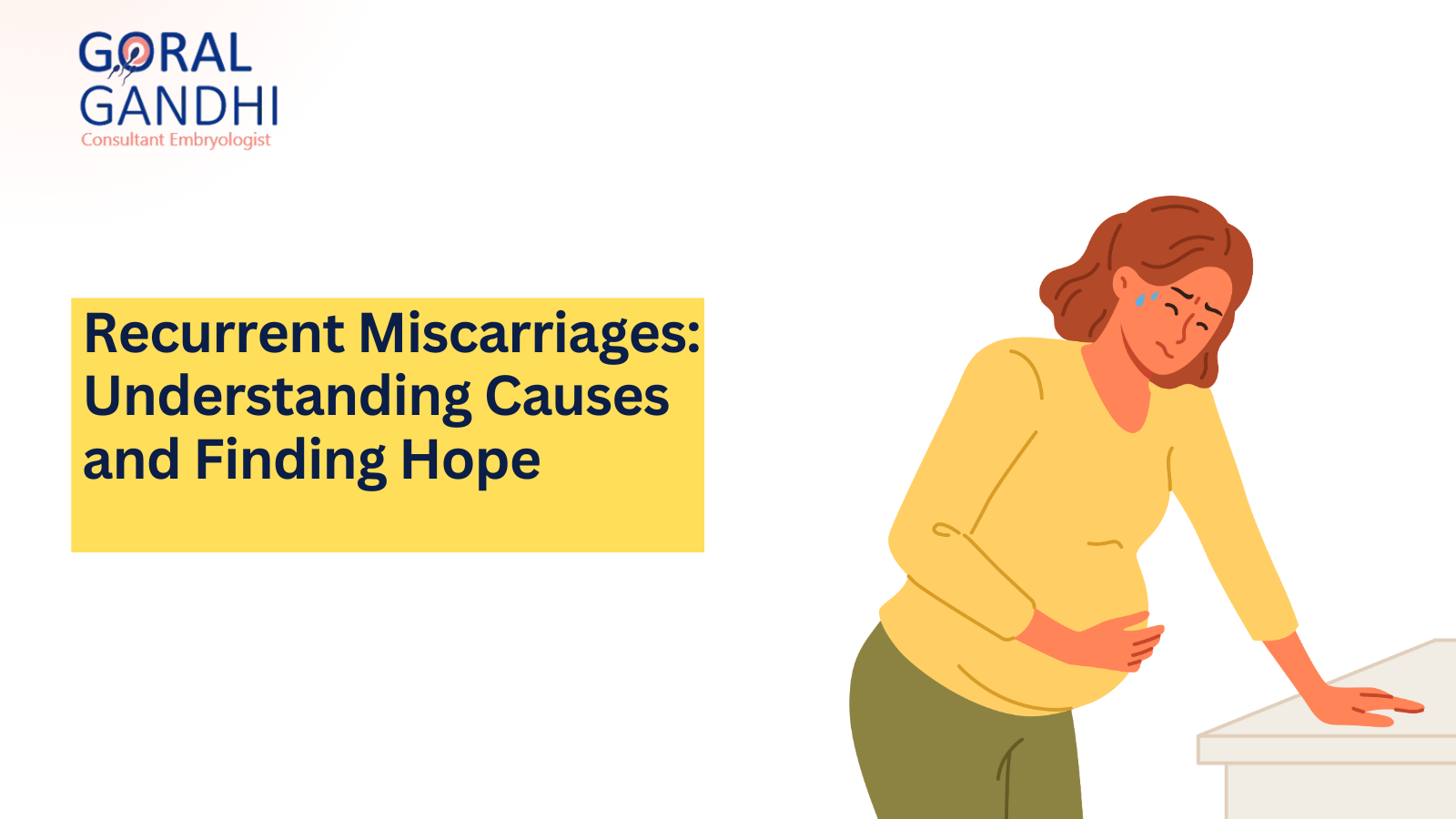

E-Brochure - Download Now!


Recurrent miscarriages (RM) can be a heartbreaking experience for couples trying to build a family. Understanding the underlying causes is crucial for finding potential solutions and providing hope. This blog aims to shed light on the causes and solutions for RM, providing you with information and offering a path towards hope.
Recurrent miscarriages are defined as the loss of two or more consecutive pregnancies. Statistics indicate that approximately 1-2% of women experience RM, underscoring the importance of addressing this issue. The emotional impact on couples can be profound, leading to feelings of grief, loss, and frustration.
Several factors can contribute to RM, some of which can be addressed:
A comprehensive evaluation is crucial to identify potential causes of RM. This may involve blood tests to examine hormone levels and screen for genetic abnormalities. Ultrasounds can help visualise the uterus and ovaries, while hysteroscopy allows for a more detailed examination of the uterine cavity. Genetic counselling can also be beneficial to assess potential risks.
Once a cause is identified, there are treatment options available:
Preventing RM involves early prenatal care and addressing underlying health issues. It is crucial to provide support for couples experiencing RM. Various resources are available for further information and assistance.
Remember, you are not alone. This journey may feel challenging, but with knowledge, support and professional guidance, there is hope for a successful pregnancy. Don't hesitate to seek help from your doctor to dig deeper into your unique situation and explore the best options for you. Understanding the factors and discussing potential solutions can pave the way for a brighter future.
Are you struggling with recurrent miscarriages? Confused about who to ask and what to do? Book an appointment with Goral Gandhi at Global Fertility Solutions for professional help. She can provide the support and guidance needed to achieve a successful pregnancy.